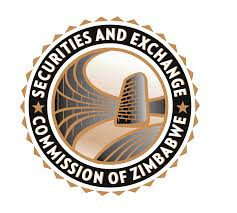
THE Securities and Exchange Commission of Zimbabwe (SecZim) has revealed that financial crime risk in capital markets eased in the first quarter (Q1), but remains moderately exposed to money laundering, terrorism financing and related threats.
In its latest newsletter, the commission rated the overall sector risk as “medium low,” with a score of 0,39 in Q1, down from 0,40 in the previous quarter.
The commission evaluated how vulnerable 130 financial institutions across the capital markets were to being misused for money laundering (ML), terrorism financing (TF) and proliferation financing (PF).
These risk assessments are crucial because they help regulators identify weak spots in the financial system that could be exploited for money laundering, terrorism financing, or other illicit activities.
In Zimbabwe, the southern African nation is estimated to lose billions of dollars annually due to illicit financial activities and externalisation.
“The commission conducted an off-site assessment of ML/TF/PF risk exposure across eight subsectors. The analysis covered 130 institutions, including 36 asset managers, 22 dealing firms, six custodians, two exchanges, seven trustees, three transfer secretaries, two CSDs [central securities depositories] and 52 investment advisors,” SecZim said in its newsletter.
“The risk score for Q1 2025 was 0,39, reflecting a “medium low” rating, a slight improvement from 0,40 in Q4 2024.”
By regularly monitoring these risks, authorities can guide firms to tighten controls, protect investors and maintain the integrity and stability of the capital markets.
- New perspectives: Money laundering red flags in insurance sector
- Govt, CSOs start dialogue on PVO Bill
- New perspectives: Money laundering red flags in insurance sector
- Govt, CSOs start dialogue on PVO Bill
Keep Reading
“Risk scores were determined across five domains: business nature, client profile, product/service risk, distribution channels and geographical exposure. Control effectiveness and residual risk varied by subsector,” SecZim said.
However, key vulnerabilities were identified.
“The sector’s overall residual risk was rated medium low. Key vulnerabilities included: High-risk elements: customer and country risk for custodians and investment managers and geography for transfer secretaries,” SecZim said.
“Low control strength: gaps in KYC [Know Your Client] documentation, beneficial ownership verification, transaction monitoring and reporting.”
SecZim investor education and public relations manager Farai Mpofu said the risk assessment meant that the sector had a 39% residual risk of potential misuse after implementing controls.
“This level of risk falls within the medium-low category on our five-tier risk rating scale. Otherwise, it will be low risk when using a three-tier risk rating scale. The sector is implementing all necessary controls required,” she said.
“The knowledge gap was the challenge in previous years; otherwise, with capacity-building efforts by the commission and the FIU [Financial Intelligence Unit], the sector is doing well to mitigate its risks.”
Mpofu said the sector was implementing all necessary controls required about the high-risk elements, saying the knowledge gap was the challenge in previous years.
“Otherwise, with capacity-building efforts by the commission and the FIU, the sector is doing well to mitigate its risks,” she said.
“The sector has minimal risk due to non-use of hard cash. All transactions are completed through formal banking channels with enhanced controls.”
However, to improve the ratings, she said the commission was enhancing risk-based supervision, improving transaction monitoring and due diligence, addressing emerging risks, and promoting transparency and information sharing.
“Building capacity and awareness (capacity-building efforts being extended to board and senior management and internal auditors of sector players on top of the compliance team) and strengthening enforcement on non-compliant players,” Mpofu said.










